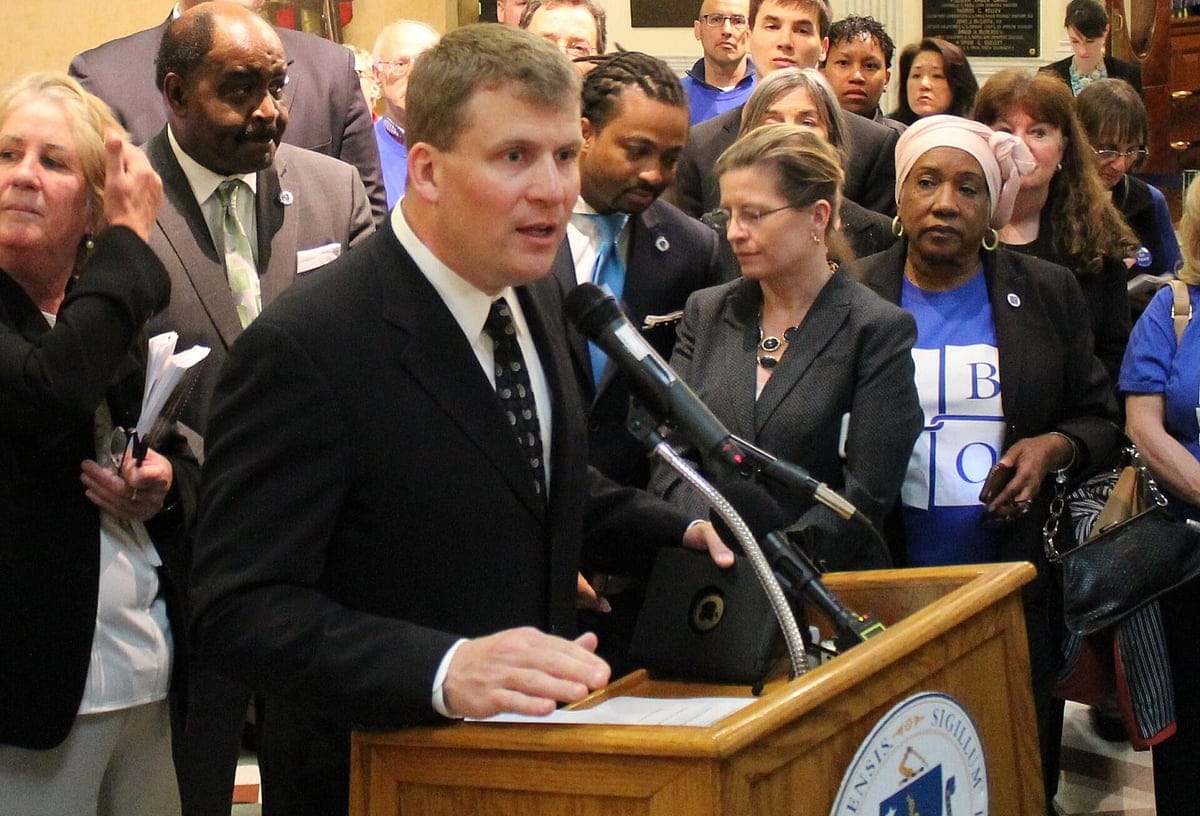Heroux’s GOP Colleagues on Beacon Hill Crafting Bill to Bar Mayoral/Representative Double-Dip

By Matt Murphy

By Matt Murphy

BOSTON — Governor Charlie Baker announced the appointment of a new superintendent of the Massachusetts State Police on the heels of Colonel Richard D. McKeon's abrupt retirement days after a state trooper slapped him and the agency with a federal lawsuit alleging a conspiracy to scrub embarrassing and lurid details from the arrest report of a prominent judge's daughter.
"Today I swore-in Lieutenant Kerry Gilpin as the new superintendent colonel of the Massachusetts State Police," Baker said during a brief press conference. "She has a 24-year history with the department, has served a variety of roles, is well-qualified and I believe will do a terrific job. She knows that we expect her to do a review of the policies, procedures, and protocols associated with editing arrest reports, and we'll also be removing the observation reports from the files of the two troopers involved in this issue."